The Economics of Streaming
The industry is changing rapidly.
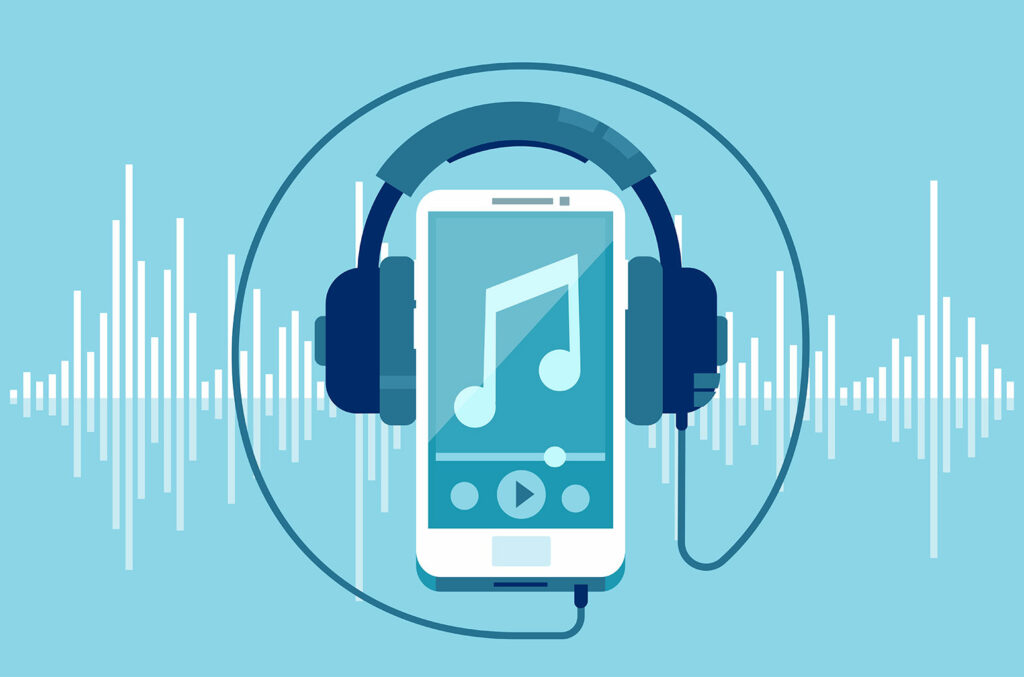
The controversy involving Neil Young and other artists protesting Spotify’s hosting of Joe Rogan’s podcast shines light on a longstanding conversation: the sustainability of a seemingly unprofitable business model. It’s too soon to tell how many artists will join in the boycott or what the long-term impact will be on Spotify. But we have some early indications.
As of yesterday, Spotify shares, which had been plummeting even before the current brouhaha, “received an upgrade from Citi” and “surged more than 13.5%.” But, again, it’s way too early to assess.
Writing near the outset of the controversy, The Verge‘s Ashley Carman explained, “Why Spotify can’t afford to lose Joe Rogan.”
This marks a critical turning point in Spotify’s company narrative. It’s no longer a music company but one committed to podcasting to the point that it’ll compromise relationships with musical artists to ensure its strategy’s success. And, to be fair, we could have assumed this would play out like it did. Who was Spotify going to pick: a musician whose heyday was decades ago or a zeitgeisty comedian who causes PR headaches but also commands a minimum ad spend of $1 million?
I’m processing the situation in a couple ways, but one is assessing the economic incentives. Spotify’s thinking is obvious. What does losing Young mean? The company’s not financially dependent on his streams or subscribers — Drake or Taylor Swift might be a different story — and barring a mass exodus of subscribers over his missing catalog, things remain business as usual. In fact, the company loses money every time someone streams Young’s songs, which is why Spotify wanted to get into podcasting in the first place. It makes money every time someone listens to Rogan.
On the flip side, I’m not sure what Young’s label, Warner Records, gets out of this. Maybe it wants leverage in a negotiation or to change the conversation around streaming? I’m not sure, but I do assume some sort of politicking is happening behind the scenes that could somehow net a win for Warner. Maybe people listen to more Young elsewhere? Buy some CDs? Unclear.
Still, the takeaway from the skirmish is clear: Spotify can’t afford to ostracize Rogan or his audience. The company specifically licensed his show with the goal of both converting listeners to the platform and making money through ad sales. JRE has become the lynchpin to its entire podcasting apparatus.
A source previously told me that if marketers buy ads on Rogan, they have to buy ads on the rest of Spotify’s catalog, too, meaning Rogan’s success brings more advertisers to the rest of Spotify’s investments. Without him, Spotify has Call Her Daddy and Armchair Expert, but neither reaches Rogan’s scale. It’s easy to see why Spotify didn’t cave so easily.
Still, Kevin Roose writes for NYT, “Spotify’s Joe Rogan Problem Isn’t Going Away.”
Despite its surface similarities, Mr. Rogan’s Spotify standoff is different from most other clashes between creators and tech platforms in a few key ways.
For one, Spotify isn’t merely one of many apps that distribute Mr. Rogan’s podcast. The streaming service paid more than $100 million for exclusive rights to “The Joe Rogan Experience” in 2020, making him the headline act for its growing podcast division. Critics say that deal, along with the aggressive way Spotify has promoted Mr. Rogan’s show inside its app, gives the company more responsibility for his show than others it carries.
Another difference is who wields the leverage in this conflict. YouTube, Twitter and Facebook are ad-supported businesses; if advertisers disagree with moderation decisions, they can threaten to inflict financial damage by pulling their campaigns. (Whether these boycotts actually accomplish anything is another question.)
Spotify, by contrast, makes most of its money from subscriptions, so it’s unlikely to suffer financially from its handling of Mr. Rogan unless there’s a wave of account cancellations. And given how few Netflix subscribers appear to have canceled their subscriptions during last year’s dust-up with Mr. Chappelle, Spotify can probably breathe easy on this front for now.
But Spotify has a different constituency to worry about: stars. A leading music streaming service like Spotify needs to have popular hits in its library, which means that, in theory, musicians with enough firepower could force change simply by threatening to remove their albums. (As a viral tweet last week put it: “Taylor Swift could end Joe Rogan with a single tweet at Spotify.”) In practice, it’s a bit more complicated than that, in part because record labels, not musicians, generally control streaming rights. But it’s still possible that if Mr. Young’s and Ms. Mitchell’s moves inspire more top musicians and/or labels to pull their songs from Spotify, it could become a real business risk for the company.
It is. But, as popular as Taylor Swift is, it’s notable that she pulled her content off the platform many years ago, only to quietly return a couple of years later. After speculating that Rogan—who, after all, merely gives a platform to lunatics to spread their lies, and therefore has some plausible deniability (he’s just asking questions, you see)—could moderate his content, Roose offers,
A third option is that the whole controversy could simply fizzle out, like last year’s imbroglio with Mr. Chappelle and Netflix, which began after the comedian was accused of making transphobic remarks during a special and ended, days later, with no real consequences for anyone. But this outcome doesn’t seem likely, given that boycotts have already begun and appear to be snowballing.
The relationship between media personalities and the networks that air their work has always been fraught. But it has gotten messier in recent years, as growth-hungry tech companies have begun to pay top stars directly for their content. These deals have made them more like the radio and TV stations of old — picking popular acts, paying handsomely for their work, assuming greater responsibility for their output — and less like the neutral platforms they once claimed to be.
The relationships between the companies and their users is changing, too. Users of these services have learned, by observing dozens of backlash cycles over the past several years, that a sufficient amount of pressure can get a tech company to do almost anything. They understand that the companies’ rules are fuzzy and improvisational, and that what chief executives mostly want — no matter what high-minded principles they profess to hold — is for people to stop yelling at them. They also know that if a company won’t take action based on listener complaints alone, there are other ways to turn up the heat.
Spotify may think it’s gotten past the worst of the Rogan backlash. But we know from recent history that what looks like the end of a content moderation controversy is often just the warm-up act.
YahooFinance producer Alexandra Canal (“Spotify-Joe Rogan backlash widens, but economics back streaming giant’s clout“):
Amid the furor, data suggests Spotify is backed by the increasingly lucrative economics of streaming, especially as digital media continues its growth, and its massive scale. The effects of similar controversies on Netflix (NFLX), which faced similar outrage over “Cuties” and Dave Chappelle’s comedy special, had a negligible impact on its stock.
According to IFPI’s latest Global Music Report, paid subscription streaming revenues increased by 18.5% in 2020. That number is widely expected to come in even higher for 2021.
Spotify leads the way, capturing 31% of total U.S. subscribers, followed by Apple Music (AAPL) at 15%, Amazon Music (AMZN) and Tencent (TCEHY) tied at 13%; YouTube Music (GOOGL) rounds out the top five at 8%.
Yet market share alone doesn’t guarantee total power to streaming platforms. Taylor Swift famously pulled her “1985” album, along with the rest of her catalog off of Spotify back in 2014, as a means of protesting artist compensation in the digital era.
Swift eventually rejoined the platform in 2017, but similar issues remain top of mind for musicians struggling to profit from Spotify’s ‘pro rata’ model in which users’ monthly fees go into one single pot. That money is then divided and distributed by the total number of streams, with Spotify receiving roughly 30% of the total subscriber’s fee.
Critics of the model say it alienates smaller artists who don’t have the backing of a big label, and takes power away from the consumer, who has no say as to where his or her money lands.
The model has also been accused of being outdated, created at a time when listening habits were drastically different, and streaming was fairly unproven.
Flash forward several years, and streaming is one of the main forms of audio consumption. Spotify boasts an impressive 381 million users across more than 184 countries and markets.
She offers a detailed breakdown of how the distributions are paid out but, in essence, Spotify keeps 30% and the rest is broken out to rightsholders.
Bottom line? Streaming balloons the value of songs and records which make platforms necessary for artists.
Not every artist will see the same cash flow, and the biggest ones have the most power, but up-and-comers need the exposure that streaming provides. Despite the bad press generated by the departures of Young, Mitchell and others, experts surmise that, ultimately, Spotify will “be fine” in the long run.
Ola Sars, founder and CEO of B2B music streaming company Soundtrack Your Brand, told Yahoo Finance during a recent interview that other media giants from YouTube (GOOGL) to Facebook (FB) have gone through their own public reckonings when it comes to platform scrutiny — and have come out relatively unscathed on the other side.
“I personally don’t think that paying subscribers will leave a platform because there’s one program that is being disputed…[Spotify] has been through this before, so has all of the other media platforms, and consumers kept paying the bill,” the executive said.
“This is probably not the only situation where certain artists don’t like other types of content…this will be day-to-day business for Spotify [and they will handle] it like any other media company moving forward,” he added.
According to Canal and multiple other reports, Young’s catalog will be exclusively available on Sirius. Thus far, though, that hasn’t happened: I’m finding lots of his stuff on both Amazon and YouTube this morning.
The bottom line, though, is that these businesses are rapidly evolving. With rare exceptions, indeed, musical artists make very little money from sales of their songs, which have essentially become loss leaders to promote lucrative concerts. That’s a reversal of decades-long trends but one that happened well before streaming took over the industry.
Further, as happened in video streaming beforehand, the competition seems to have shifted from who has access to which catalogs of old shows and music to who has the best original content. While most of us think of Spotify and the like as music streaming platforms, that’s increasingly not how they see themselves.
And, as with video, we may just have to get used to fragmented services rather than one-stop shopping.

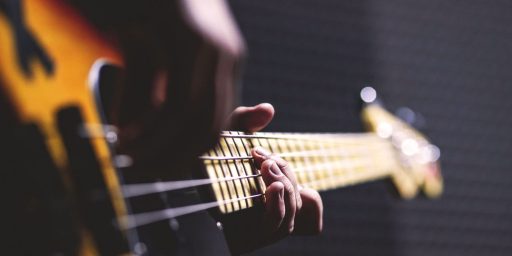
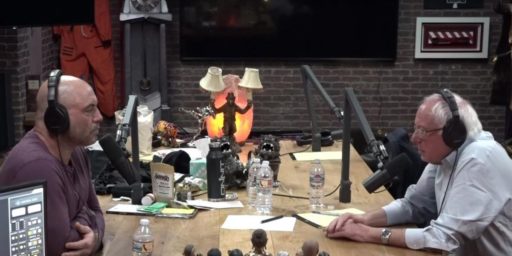
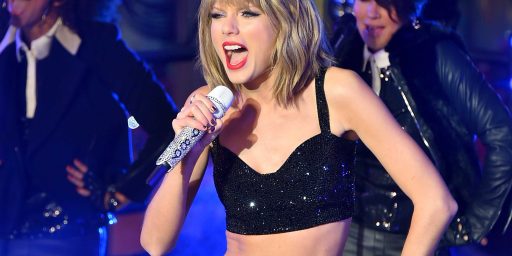
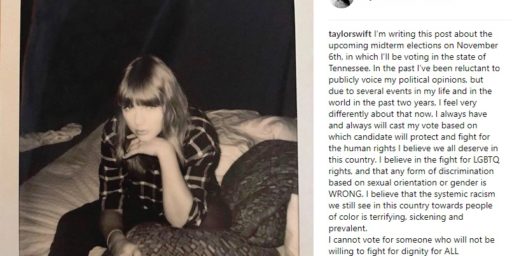

Meaning…. they knew the devil they were cutting a deal with so the backlash should have been anticipated when he inevitably crossed the line. When your profitability intentionally relies on a controversial nutcase, you cannot get pissy when people stop using your service because of said nutcase. They’re doing this to themselves – no pity.
Except Rogan CONTINUALLY makes an ass of himself and keeps pushing the boundary. That’s the whole point of him: outrageous alt-right shockjock. He’s not gonna sit quietly around till the heat dies down (which it won’t since COVID’s still raging) and even if he does, easy money to bet he’s start something else in days. He’s a walking liability they built their business model on. He will not stop being offensive as that’s his brand so Spotify is going to have moderate his content and put limits on his insanity in order for this to work….. and he won’t comply. If Spotify told him never to speak of COVID or the Big Lie again, it would take a single podcast to break the gag order and rage against Corporate America Cancel Culture.
Spotify can’t really win here. They did something dumb and now must pay for it. At best they can try to mitigate the damage but it’s not going to go away because HE won’t go away. If the alt-right keeps increasing their BS like they have been (sorry, asking questions), the platform might even start getting hit with lawsuits or other financial sanctions. This is why you don’t cut deals with devils, kids!
While this is true for artists like Adele and Beyoncé, who have special deals with the streaming companies, I suspect it’s not true for the vast, vast majority of artists. I know someone in what would be considered a successful pop/rock band and he says that until you reach a very high degree of fame streaming revenues don’t even come close to covering beer money on a tour. A lot of musicians question whether it is worth it to be on Spotify. They literally make much more money from vinyl sales than streaming.
As I understand their business model, it pays huge amounts to make sure the very most popular artists are on their site and pay everyone else close to nothing. They lose huge amounts of money on a relatively small number of huge stars, a smaller amount of money on a larger number of “gotta have” artists like Pink Floyd or Foreigner, and make a small amount of money on the remaining 99.99 percent of artists. Young certainly isn’t in the first category, and I’m not sure he would even be in the second.
It seems to me that Spotify’s greatest threat comes from that 99.99 deciding it’s they would sell even a little more merch and concert tickets if they were off it than if they were on it.
For non-hit makers, streaming services are loss leaders, in a similar way that a musician posts music on ad supported YouTube. The hope that some number of listeners who hear a song, take the time to dig a bit deeper and find the artist’s website, Instagram or other social media outlet. A performer that I’m acquainted with, who tries to ascertain how people found him, jokes that if he sells one CD, either as a hard copy or digital download, he makes more than his earnings from streaming services. I believe that is an exaggeration, but it reflects a reality.
For Young and Mitchell, their Spotify revenue is likely modest and the publicity they have received is worth it. Mitchell is in the middle of releasing a retrospective of her career that I believe will entail ~ 10 albums when completed. For a few years, Young has had a personal streaming service on his website that fans can subscribe to and stream his music.
For myself, I have no interest in streaming music, beyond sampling an unfamiliar artist on YouTube or an old concert video. I’d much rather buy the album as that is the greatest benefit to the artist, the songwriter and the supporting musicians. And that is particularly true for artists that self produce their own albums. Pod casts? I’d rather read the material.
@KM:
Spotify, and other media aggregators, find themselves in the difficult position that there is a quite sizeable paying audience for the Big Lie and Covid misinformation. It’s hard to walk away and leave that money sitting on the table. Even if Rogan were entirely reasonable and sane off the air, he faces the same problem: there’s an audience for the nutcase who repeats unsubstantiated accusations about election fraud, but no audience for an academic election expert explaining the continuous audit process that makes vote by mail secure.
The internet makes possible wonderful things, that it then proceeds to ruin in the worst way imaginable.
Spotify has been losing money until recently. It’s hard to know if that’s tied directly to Rogan, but music is ubiquitous, especially for the canonical. If Spotify decided that they can’t make a profit without Joe Rogan, they’re stuck with him.
Also, historians are going to have a field day with the conjunction of someone like Sam Harris (avowed atheist, rationalist) embracing Joe Rogan. The entire movement of libertarians and the heterodox and rationalists is something else. I remember when Bernie went on the podcast and everyone was like, oh yeah Joe’s just asking questions, and I looked at some of the guests, and one of them was Graham Hancock, who thinks aliens built the pyramids. Rogan is an embodiment of free-thinking libertarianism being astrology for white guys–just an ideology of cranks and woo-woo dumbasses, crystals and aliens, and maybe some racism too.
@KM: I see the question a little differently. I don’t know whether Rogan will become as toxic as Don Imus became. I’m not even sure it’s possible to become that toxic anymore. Either way, I don’t see Covid as a career ending subject. Maybe Covid and something else, but not Covid alone. Not in a nation of ivermectin and bleach infusions.
@MarkedMan: “It seems to me that Spotify’s greatest threat comes from that 99.99 deciding it’s they would sell even a little more merch and concert tickets if they were off it than if they were on it.”
I don’t see that as likely. Secondary boycotts are tough to begin with. “Boycott Band X because they stream on Spotify” is too long for a slogan.
@Just nutha ignint cracker: I wasn’t clear. I’m saying I don’t think a boycott is their real threat. I think it is simply that the 99.99% of their artists who make a pittance could decide that Spotify costs them money and they would be marginally better off not being part of it. It’s fine to have Taylor Swift and all that, but the attraction of streaming service is that you have the illusion that everything is available, and it’s a good place to discover new artists.
Spotify literally cannot pay those smaller artists enough to make a difference in their decision. A 25% increase would probably bankrupt Spotify and it is meaningless in terms of making a material difference to the artists.
Subscribers are paying for the convenience of the platform and other benefits, particularly eliminating ads.
Streaming platforms (not just audio) also provide value-added over buying media and managing playlists directly. I know that I am perfectly happy that I no longer have to spend days ripping my CDs and manually organizing them onto an iPod. And while we still have a bunch of shows and movies on DVD in the house, they are rarely used and those we do watch are stuff that is not available to stream.
The other benefit to these streaming platforms is discovering new content. My family has found a lot of new and interesting music that we would not have discovered without a platform like Spotify or Pandora.
I have no problem in theory with artists getting a bigger cut, but the economics has to work.
This is common in a lot of industries – Journalism is a good example. People aren’t willing to pay much for work that is expensive to produce, so the industry is in a tough position and has to rely on other revenue sources. For example, the NYT just bought Wordle and it will likely join Time’s crossword puzzle app as a huge revenue generator and gateway for the other things the Times does.
Spotify isn’t that much different IMO with Rogan being a major driver of revenue and subscriptions. Something has to pay for the 300 million or so people who use Spotify without paying a dime.
@MarkedMan: Yeah. That’s a completely different issue. I don’t know how Spotify works, tho. I would guess that if it cost anything at all to be on, it would be too costly, but I dunno.
Spotify would like to be profitable. They’re almost there.
This means they can’t really afford to have a significant chunk of their potential audience write them off for being on the wrong side of a culture war (like it or not, the Republicans have made vaccines a culture war).
So, they’re going to be trying to thread the needle and just hoping this all blows over and that they simultaneously seem like they are taking misinformation seriously and not censoring right wing misinformation voices.
Signing big deals with controversial creators is a risk.
It’s possible that they are hoping Joe Rogan turns out to be a pedophile or something, since that makes the whole problem go away without them having to take sides.
Rogan’s audience has already moved over, and people tend to be sticky, so if Rogan implodes when people discover he literally owns slaves or whatever, the audience mostly stays with the platform. Except for the ones who come out in favor of whatever horrible thing comes out about Rogan.
They would lose the big show, but they can still sell ads using that audience. Or get the subscriptions.
@Andy:
As I mentioned on the other thread. Joe Rogan is a moron, and a douche. He can’t help himself. This morning, he tweeted out bullshit several hours after it had already been debunked.
https://www.mediaite.com/online/joe-rogan-shares-false-story-on-covid-and-ivermectin-hours-after-it-was-corrected/
It’s just a matter of time that he does/says something very offensive, stupid, or dangerous. He cannot help himself because he’s not that smart.
And this is in no way a free speech issue. This is capitalism, 1o1.
@Just nutha: “Cost” is more about opportunity cost. From one example I’ve seen, the typical Spotify artist gets about $1 for 500 listens. Let’s say that the average person who listens at all, listens 25 times. That means that for every 20 listeners, they make $1. Let’s say the profit from selling a CD at their merch table is $10. That means that they need 200 listeners on Spotify to equal the sale of one CD. If the Spotify listeners merely add to the revenue, well, it’s all good. But if just one of the 200 listeners doesn’t buy a CD because they can listen on Spotify, then it’s a wash. And if two of them don’t, then it’s a net negative.
It’s a hard call because you can’t know and, let’s be honest, your typical young musician is not spending a lot of time thinking these things true. And their fans simply don’t buy CD’s so there isn’t a lot of good ways to get revenue other than concerts and streaming service.
One way that some moderately successful bands are going is to put limited stuff on the streaming services and introducing new or exclusive content via Patreon. One Patreon fan willing to subscribe for $5/month to get the unique stuff is worth much, much more than even many hundreds, even thousands of listeners on Spotify.
@MarkedMan:
My cousin is a musician in NYC. He’s put out 7 albums over the last 30 years. He pulled all his music off of Spotify because he had over 100,000 streams and made less than $1000 from Spotify. He built his own website where he hosts his music, and is now making about $500 per month from the same library of songs, selling at $.050 per song down load. His costs are about $100 per month. It’s not a living, and it’s not much, but it’s much better than what he was getting with Spotify.
Edit function showed up.
@EddieInCA: Good for your cousin. I’m curious about how he set his price point.
“Professional Musician” has an interesting history. I would bet that for the past 5000 years prior to, say, 1925 or so, the profession didn’t change much. There were probably local musicians who lived and worked in large cities either gigging, or continuously employed in some form of a house band, or a combination of the two. If someone wanted to listen to music or wanted their patrons or guests to listen to music, you needed musicians. And while there were itinerant musicians, my guess is the vast majority could live in the same city they worked and raise a family and eat dinner with them every day.
Then along came radio and pre-recorded music and that blew everything to hell and back. The way musicians make their money has changed every 10 years or so for the past century. Heck, in my lifetime it went from selling singles, to selling albums (in any format) to selling streams. Radio play went from non-existent to the primary source of income for many musicians, and now it’s almost nothing except for big names. For most of that century you didn’t have to compete with the previous generation’s music and now you are competing against the previous two generations, at least. Touring was a way to make a living, then it was a loss leader used to generate interest in singles and/or albums and stimulate radio play, and now it’s back to being a source of income with recordings stimulating ticket sales. And I could go on and on.
I don’t know how musicians keep their heads from exploding.
@MarkedMan:
I think there was something about musicians in a lecture series on the Gilded Age and Progressive Era. If memory serves, the number of professional musicians as a percentage of the population dropped noticeably once radio and recorded music became a thing, and so did local music ventures like theaters, symphony halls, and opera houses.
@MarkedMan:
Apple was selling his songs at $.99 so he said “I’ll do half that.”. His music is still on Apple, I think. But not sure.
@EddieInCA:
The irony is he would probably agree with you about being a douchebag and a moron. If people would actually take the time to listen to his show, he calls himself a moron with regularity, admits he’s just a dumb comedian and MMA commenter and says that no one should take medical advice from him.
The point of my comments in the last thread was about people who had never seen a single episode of his show acting like experts not only on the show, but on Rogan himself. I compared this to someone who hadn’t seen a single MCU movie declaring that they all are crap with terrible writing, and special effects. Or those who talk about how bad a book is that they never read. Those are the kind of “opinions” I roll my eyes at.
I don’t expect that anyone should like Rogan or his show. I literally couldn’t care less what anyone thinks of him. As I said, I find some of his shows very good and interesting, others very bad, and most of them not in my bag of interests. But the difference between me and most of the people who responded to my question in that other thread is that my opinion about Rogan’s show is actually informed. I didn’t download what I think from Twitter or someone in my ideological bubble and then go around acting like an expert on his character and show.
Since you know Rogan that criticism doesn’t apply to you.
Well, as I recall, I think you and I have very different ideas about free speech. I don’t really have time to retread that ground except to say that free speech, for me, is a genuine first principle, not merely an inconvenient part of the Constitution that should be narrowly applied. And, by extension, I do not agree with the notion that most people are dumb, pliable sheep who need to be protected from wrongthink and bad ideas by self-appointed and self-righteous ideologues. But YMMV.
@EddieInCA:
Those are stories I like to hear. But I wonder why he can’t do both – there are a lot of small artists that are on the streaming platforms while also publishing independently and in other places. My son, for example, listens to some young musicians who first got somewhat popular on Youtube. Their stuff is on Spotify, but they still do Youtube, livestreams on Youtube and Twitch, utilize Patreon, and others for revenue and for gaining an audience.
What genre of music does he do?
@Andy:
You ignored the thrust of my argument in the previous thread, which is that Joe Rogan, BY HIS COMMENTS AND GUESTS, is responsible for misinformation that has gotten people killed. There are people who literally have said that they listened to Joe Rogan over their doctors. You seem to have no problem with that. And that sucks. Sorry, man. But it does.
https://news.wttw.com/2022/01/31/chicago-epidemiologist-dr-kat-calls-out-joe-rogan-covid-19-misinformation
https://www.mediaite.com/podcasts/joe-rogan-mocks-liberals-over-covid-precautions-masks-are-like-the-democrats-maga-hat/
Customers wanting to not be associated with such a person isn’t a free speech issue. It’s capitalism, 101, as I said before. You want people to be free of consequences for their speech? Forgive me if I”m misrepresenting your position, but that’s how it comes across.
@Andy:
Good old fashioned rock for the most part. Although he did put out a Spanish language Reggaeton album about 5 years ago.
I asked him. He said the hassle of Spotify wasn’t worth it.
It’s become an article of faith among the Rogan apologists like Andy that Rogan’s critics have never listened to his show. Well, maybe they haven’t listened as much as a faithful fan, but it’s pretty clear that critics have indeed listened to his show. I’ve seen plenty of evidence of that. And I have listened enough to know what he’s all about, which is barstool analysis.
The man calls himself a moron but it’s not to downplay the veracity of his show – it’s to claim a kinship with his listeners and to absolve himself of any responsibility for vetting his guests and fact checking.
Speaking of fact checking, it was pretty on brand that his nopology included a claim that he loved Joni Mitchell and Neil Young’s music and his favourite Joni Mitchell song was [wait for it] “Chuck-E’s in Love”. Guess he “did his own research” on that one.
@EddieInCA:
The problem is that is the same argument that everyone uses to justify banning content. That’s the same logic that the county school board in Tennesee used to remove Maus from the curriculum by arguing that it would harm children. Why should we allow Mein Kampf to be published and put in public libraries and online where anyone can access it? – it might make someone anti-semetic! It’s the same argument Tipper Gore and the Moral Majority used to try to ban “satanic” music and keep kids from becoming gay. In all these cases it’s self-appointed the enlightened ones who think it is their responsibility to suppress bad ideas to protect the poor stupid rubes from their own stupidity. And that is the argument you’re making with Rogan.
In reality, people have agency.
And if you want to get pedantic, there is another side of that coin. There is Rogan’s misinformation but there is also misinformation over-hyping the dangers of Covid. Polling shows that Democrats pretty consistently believe Covid is more dangerous and deadly than it actually is. Fear-monger kills people too. The number of people who died because they were too afraid to go to the ER or get necessary medical procedures is part of the death toll too. Whose hands is that blood on?
Furthermore, in my view, attempting to suppress ideas does not work. Bad ideas are best combated by exposing them and confronting them, you can’t fight bad ideas by suppressing them.
And the irony with this Rogan controversy is that everyone wins. The attempts to ostracize and get Spotify to cancel Rogan only increased the public’s exposure to him. Some may start to listen to his show and find out it’s not like what his worst critics described.
Meanwhile, Young and Joni get their profile raised as well and will probably make more money. The culture warriors on both sides can give themselves a pat on the back and move on to the next battle.
Yay, America!?
I have zero problems with people voting with their dollars. What I don’t like are the Twitter mobs that try to bully people and organizations into compliance and attempting (and often succeeding) in destroying people’s careers and lives over a mistake or for uttering some mildly heterodox view. People ought to stand up to them. I think a culture of free expression is critical to a functioning liberal society but that cannot exist when people literally believe that speech they don’t like is violence, and therefore extreme measures are justified to oppose and suppress that speech.
As far as “capitalism 101” goes, then that fits the Hollywood blacklist. Firing Whoopi, Pesca, Schor, McNeill and the thousands of people who are unemployable thanks to the Jihad against wrongthink by cancel culture warriors is all just capitalism 101, right? Totally justified, right? If you want to defend and die on that hill, be my guest, but I will continue to oppose it and call it out for what it is.
@JustAGirl:
Yep. All a hoax. All misinformation. Riiiiight.
https://www.vox.com/policy-and-politics/2018/2/20/17031772/mueller-indictments-grand-jury
@Andy:
Sorry dude. You’re conflating actions by a school board (i.e. government) and a private companies and citizens. Big. Big. Big. Big difference.